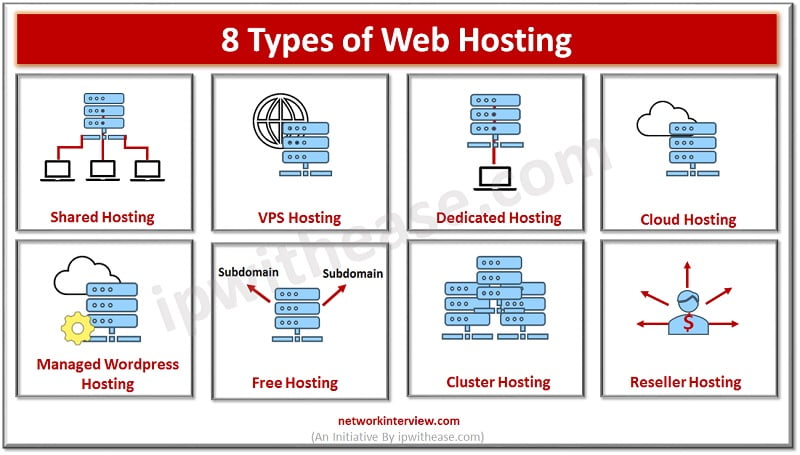Unlocking the Digital Domain: The Ultimate Guide to Web Hosting Explained
In today's digital age, establishing an online presence is essential for individuals and businesses alike. Whether you are launching a personal blog, an e-commerce site, or a portfolio to showcase your work, understanding web hosting is a critical step in this journey. web hosting morocco serves as the backbone of your website; it is the service that allows your site to be accessible on the internet. With countless hosting options available, navigating this landscape can be overwhelming for beginners.
Choosing the right web hosting service can significantly impact your site's performance, security, and growth potential. From shared hosting to dedicated servers, each type comes with its own set of features, advantages, and challenges. This guide aims to demystify web hosting, providing you with the knowledge you need to make informed decisions and ultimately unlock the full potential of your digital domain. Whether you're a novice or looking to optimize your current setup, understanding web hosting is key to achieving your online goals.
Types of Web Hosting
Web hosting comes in several forms, each catering to different needs and levels of expertise. Shared hosting is one of the most popular options, particularly for small websites and blogs. In this setup, multiple websites reside on a single server, sharing its resources such as storage, bandwidth, and processing power. This makes it an economical choice for those just starting out, but it can lead to performance issues if one of the websites experiences a surge in traffic.
VPS hosting, or Virtual Private Server hosting, provides a middle ground between shared hosting and dedicated hosting. In VPS hosting, a single physical server is divided into multiple virtual servers, each with its own dedicated resources. This offers greater control and flexibility, allowing users to install their own software and customize their environment. It is ideal for businesses that need more power and reliability than shared hosting can provide, but do not yet require a fully dedicated server.
Dedicated hosting is the premium option, giving users complete control over an entire server. This type of hosting is best suited for large businesses or high-traffic websites that need optimal performance, security, and customization capabilities. It can be more expensive, but the benefits include enhanced speed, better security measures, and the ability to handle significant amounts of traffic without compromise. Each type of hosting has its advantages, making it essential for users to choose the right one according to their specific requirements.
Choosing the Right Provider
Selecting the right web hosting provider is crucial for your online presence. Start by evaluating your specific needs, such as the type of website you are creating, expected traffic levels, and budget. It's important to distinguish between different hosting options like shared, VPS, dedicated, and cloud hosting. Each has its own advantages and disadvantages, and understanding the right fit for your requirements will help streamline the selection process.
Another key consideration is the provider's uptime and reliability. Look for hosting services that guarantee high uptime percentages and offer strong customer support. Reading customer reviews and testimonials can provide insight into the experiences of others, giving you a clearer picture of what to expect. Excellent support means that you can resolve issues promptly, minimizing any potential negative impact on your site.
Finally, consider the scalability of the hosting services offered. As your website grows, you may need to upgrade your hosting plan or migrate to a different type of service. Ensure that the provider allows for easy scaling without significant downtimes or complications. This flexibility can save you headaches in the long run, keeping your website running smoothly as your needs evolve.
Understanding Pricing Plans
When choosing a web hosting service, understanding pricing plans is crucial for finding the right fit for your needs. Most providers offer a variety of plans that cater to different levels of service and resource allocation. Typically, these plans range from shared hosting, which is the most affordable option for small websites, to dedicated hosting, which provides robust resources for larger businesses but comes at a higher cost. It's important to assess your requirements not only based on anticipated traffic but also considering future growth to ensure that you select a plan that can scale with your needs.
Another key aspect to consider is the duration of the hosting contract. Many providers offer significant discounts for long-term commitments, such as annual or multi-year plans. While this can seem appealing, it's essential to weigh the risks associated with locking into a long-term agreement. If the service does not meet your expectations or if your needs change, it might be challenging to shift to a different provider without incurring penalties or losing your investment. Therefore, it's wise to review the flexibility of the plans on offer.
Lastly, hidden costs can often catch users off guard, impacting the overall value of a hosting plan. While a hosting package may initially seem inexpensive, potential added charges for features like SSL certificates, backups, and email accounts can significantly increase the total cost. Always scrutinize what is included in the price and seek clarity on any additional fees that may arise. Being informed about the full scope of costs helps ensure you make a well-rounded decision when it comes to web hosting.
